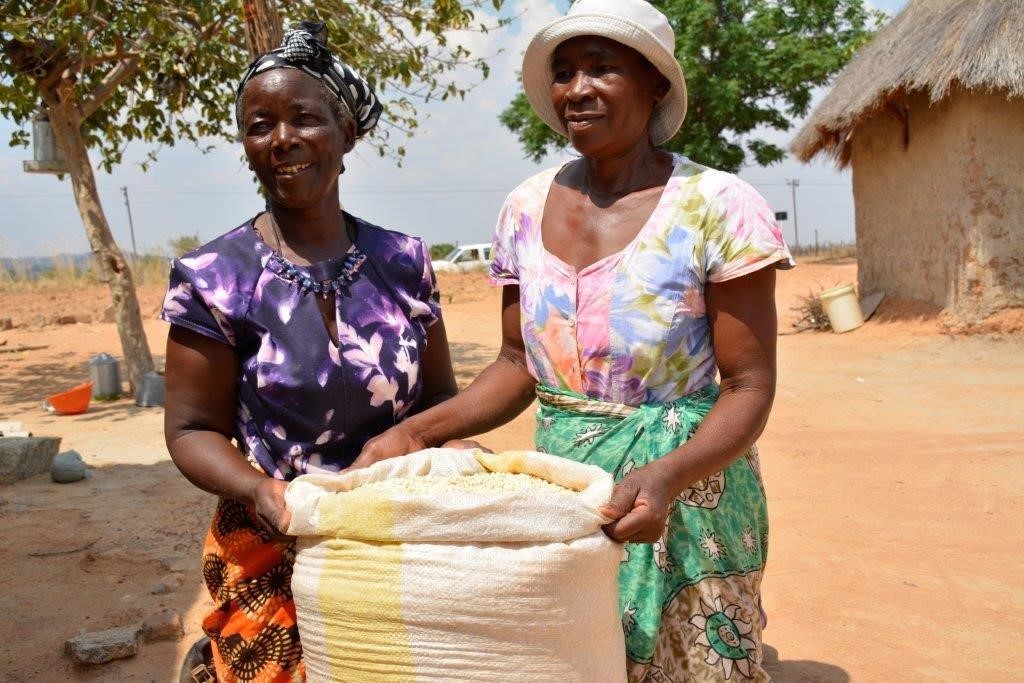Year: 2016
Agricultural biodiversity key to future crop improvement
 Climate adaptation and mitigation
Climate adaptation and mitigation
Conserving and using agricultural biodiversity to create better crops can help meet several sustainable development goals and stave off further species extinctions.
Target for 10 million more climate-smart farmers in southern Africa amid rising cost of El Niño
 Climate adaptation and mitigation
Climate adaptation and mitigation
Research centers, development agencies and governments must work together to respond to climate predictions before food crises develop, say two CIMMYT scientists.
New Publications: Durum wheat is becoming more susceptible to rust globally
 Innovations
Innovations
Leaf rust is increasingly impacting durum wheat production worldwide.
Sustainable agriculture poised to save Mayan rainforests from deforestation
 Capacity development
Capacity development
Sustainable farming practices allow smallholder farmers to improve maize yields while reducing deforestation in Mexico, report finds.
Improved genetic analysis offers faster, more precise results to crop breeders
 Innovations
Innovations
Researchers improve global collaboration on harnessing genes in breeding that can help the crop withstand the effects of climate change.
New online learning platform offers capacity development for all
 Innovations
Innovations
An online learning platform created in partnership with the Seeds of Discovery (SeeD) initiative will revolutionize the project’s capacity development efforts.
Drought- and heat-tolerant maize tackles climate change in southern Africa
 Climate adaptation and mitigation
Climate adaptation and mitigation
CIMMYT’s drought-tolerant varieties have been delivered to three million farmers across Africa.
Combating spread of MLN in Africa poses unique but surmountable challenges, seed health specialist says
 Innovations
Innovations
Maize lethal necrosis poses a major concern to researchers, seed companies and farmers in sub-Saharan Africa.
Partners invited to apply for allocation of new CIMMYT pre-commercial hybrids
CIMMYT offers a new set of improved maize hybrids to partners in southern Africa and similar regions, to scale up production for farmers in these areas.
New Publications: With climate change, pests likely to spread to new agricultural areas
 Nutrition, health and food security
Nutrition, health and food security
Pests are likely to spread as climate change continues to impact farming systems globally, according to a new study.
Improved drought tolerant maize varieties: a sustainable solution to climate change
 Nutrition, health and food security
Nutrition, health and food security
Stakeholders in the agricultural sector met in Nairobi, Kenya, for the 4th Annual Food Security Conference (AFSC) on 12-13 October 2016.
Taking aim at climate change
 Climate adaptation and mitigation
Climate adaptation and mitigation
Check out our latest fact sheet and learn how CIMMYT is responding to climate change.
First drought tolerant and insect resistant “stacked” transgenic maize harvested in Kenya
 Innovations
Innovations
For the first time, transgenic maize hybrids that combine insect resistance and drought tolerance have been harvested from confined field trials.
Public initiatives key to harnessing genetic diversity for food security, says genetic resources expert
 Innovations
Innovations
Public initiatives to facilitate the use of genetic resources must be promoted to demonstrate the value they add to agriculture for development and food security.
Promoting drought tolerant maize seed in southern Africa
 Nutrition, health and food security
Nutrition, health and food security
CIMMYT held seed fairs in Zimbabwe to promote the sharing of information and knowledge about new seed options for farmers.
